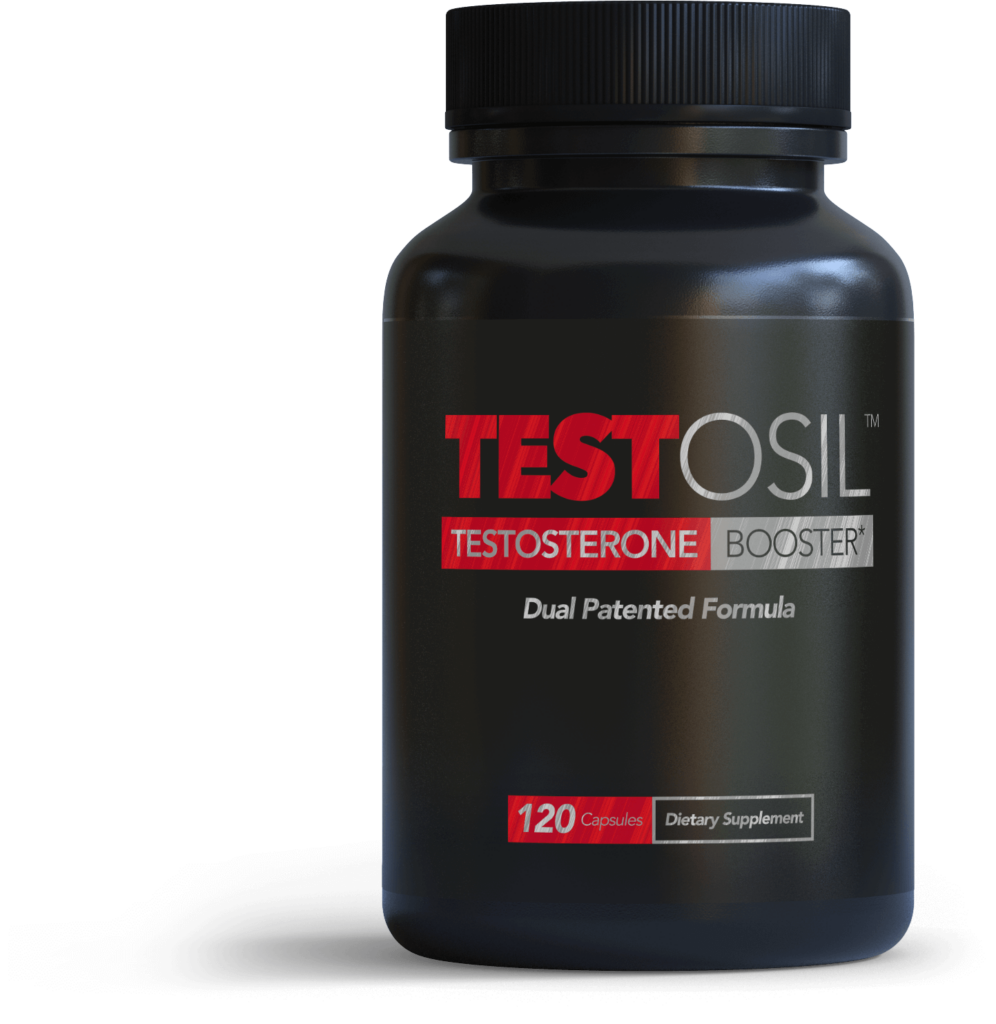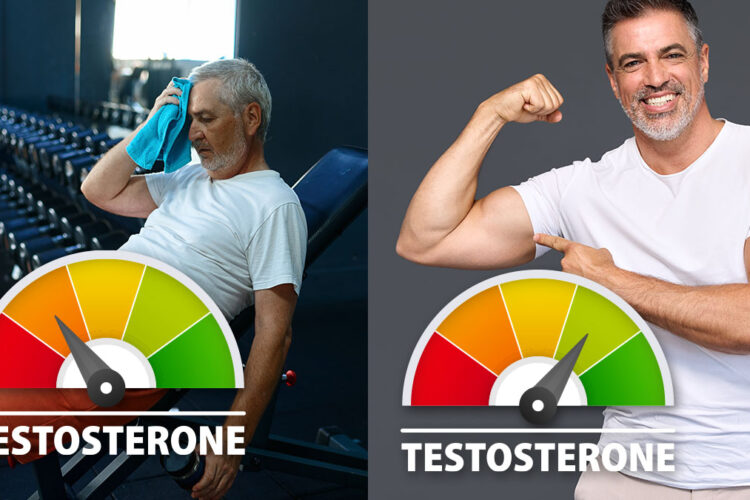As men journey through life, their bodies undergo numerous changes, many of which are linked to shifting hormone levels. Of these hormones, testosterone stands out as particularly significant for male health and well-being. This powerful androgen affects everything from muscle mass and bone density to energy levels and mood. Understanding how testosterone changes as you age—and what you can do about it—is essential for maintaining optimal health in your later years.
Understanding Testosterone’s Functions
Testosterone is the primary male sex hormone, though it’s present in both men and women (albeit in significantly different amounts). This hormone plays a crucial role in:
- Building and maintaining muscle mass
- Supporting bone density
- Regulating fat distribution
- Producing red blood cells
- Managing mood and cognitive function
- Supporting sexual function and libido
- Promoting facial and body hair growth
- Maintaining energy levels
The Natural Decline: What Happens as You Age
Beginning around age 30, most men experience a gradual decline in testosterone production, typically at a rate of about 1% per year [1]. This natural decrease, sometimes called andropause or male menopause, can lead to various symptoms and health concerns:
- Reduced muscle mass and increased body fat
- Decreased bone density and increased fracture risk
- Lower energy levels and increased fatigue
- Reduced libido and sexual function
- Changes in mood, including increased risk of depression
- Cognitive changes, including memory and concentration issues
- Sleep disturbances
- Reduced red blood cell production
Research published in the Journal of Clinical Endocrinology & Metabolism found that approximately 39% of men aged 45 and older have lower-than-optimal testosterone levels [2]. This prevalence increases with age, affecting an estimated 50% of men over 80 years old.
Health Implications of Low Testosterone
The implications of declining testosterone extend beyond immediate symptoms. Studies have linked low testosterone levels to several serious health conditions:
- Cardiovascular Disease: Research suggests that low testosterone may be associated with an increased risk of cardiovascular events, though the relationship is complex [3].
- Type 2 Diabetes: Men with low testosterone have a higher risk of developing insulin resistance and type 2 diabetes [4].
- Metabolic Syndrome: This cluster of conditions (increased blood pressure, high blood sugar, excess body fat around the waist, and abnormal cholesterol levels) has been associated with low testosterone [5].
- Osteoporosis: Reduced bone density increases fracture risk, particularly in older men [6].
- Frailty and Sarcopenia: Loss of muscle mass and strength can lead to decreased mobility and independence [7].
Lifestyle Factors That Influence Testosterone
While age-related testosterone decline is natural, several lifestyle factors can accelerate this process:
- Obesity: Excess body fat, particularly around the abdomen, can reduce testosterone production and increase its conversion to estrogen [8].
- Chronic Stress: Elevated cortisol levels from chronic stress can suppress testosterone production [9].
- Poor Sleep: Quality sleep is essential for hormone production, including testosterone [10].
- Sedentary Lifestyle: Regular physical activity, particularly resistance training, helps maintain testosterone levels [11].
- Poor Nutrition: Diets high in processed foods and low in essential nutrients can negatively impact hormone production [12].
- Alcohol Consumption: Excessive alcohol intake can lower testosterone levels [13].
Natural Ways to Support Testosterone Production
Before considering supplements or medical interventions, several evidence-based lifestyle modifications can help optimize testosterone production:
- Maintain a Healthy Weight: Losing excess weight, particularly abdominal fat, can help normalize testosterone levels.
- Exercise Regularly: Resistance training and high-intensity interval training (HIIT) have been shown to boost testosterone production [14].
- Optimize Nutrition: Consuming adequate protein, healthy fats, and micronutrients (particularly zinc, vitamin D, and magnesium) supports hormone production [15].
- Manage Stress: Practices like meditation, deep breathing, and adequate leisure time can help reduce cortisol and support testosterone.
- Prioritize Sleep: Aim for 7-9 hours of quality sleep each night.
- Limit Alcohol: Moderate consumption or abstinence can prevent testosterone suppression.
Supplement Options for Testosterone Support
For men seeking additional support, several natural supplements have shown promise in supporting healthy testosterone levels:
- Vitamin D: Often called the “sunshine vitamin,” vitamin D acts more like a hormone in the body and has been linked to testosterone production [16].
- Zinc: This essential mineral is critical for testosterone production, and deficiencies are common, particularly in older men [17].
- Magnesium: This mineral plays a role in over 300 enzymatic reactions, including those involved in testosterone production [18].
- Ashwagandha: This adaptogenic herb has been shown to help manage stress and may support testosterone levels [19].
- Fenugreek: Some studies suggest this herb may help maintain healthy testosterone levels [20].
When to Consider Medical Interventio
If you’re experiencing significant symptoms of low testosterone despite lifestyle modifications, it may be appropriate to consult with a healthcare provider. Medical options include:
- Testosterone Replacement Therapy (TRT): Available in various forms (injections, patches, gels, or pellets), TRT can effectively address symptoms of clinically low testosterone. However, it requires careful monitoring and has potential side effects [21].
- Medications to Stimulate Natural Production: In some cases, medications that stimulate the body’s natural testosterone production may be appropriate.

Leading Edge Health’s Testosil: A Natural Approach to Testosterone Support
For men seeking a natural alternative to prescription treatments, supplements like Leading Edge Health’s Testosil offer a comprehensive approach to testosterone support. Testosil combines clinically studied ingredients designed to:
- Support the body’s natural testosterone production
- Help maintain muscle mass and strength
- Promote healthy energy levels and vitality
- Support sexual health and performance
- Contribute to overall well-being
Testosil’s formula includes key ingredients like KSM-66® Ashwagandha, which has been shown in clinical studies to help maintain healthy testosterone levels and support stress management. Additionally, it contains Fenugreek extract, zinc, magnesium, vitamin D, and other nutrients essential for hormone production.
Unlike prescription testosterone, Testosil works by supporting the body’s own testosterone production rather than introducing external hormones. This approach helps avoid the potential side effects associated with testosterone replacement therapy while still addressing many of the symptoms of age-related testosterone decline.
Conclusion
Maintaining healthy testosterone levels is a crucial aspect of healthy aging for men. While some decline is natural and inevitable, understanding the factors that influence testosterone production and taking proactive steps to support your hormonal health can make a significant difference in how you feel and function as you age.
Whether through lifestyle modifications, nutritional support, or supplements like Testosil, there are many options available to help you navigate this aspect of male aging successfully. As with any health concern, it’s always best to work with healthcare providers who can offer personalized guidance based on your specific needs and medical history.
References:
- Feldman HA, et al. “Age trends in the level of serum testosterone and other hormones in middle-aged men: longitudinal results from the Massachusetts male aging study.” J Clin Endocrinol Metab. 2002.
- Mulligan T, et al. “Prevalence of hypogonadism in males aged at least 45 years: the HIM study.” Int J Clin Pract. 2006.
- Corona G, et al. “Testosterone and cardiovascular risk: meta-analysis of interventional studies.” J Sex Med. 2018.
- Grossmann M. “Testosterone and glucose metabolism in men: current concepts and controversies.” J Endocrinol. 2014.
- Brand JS, et al. “Testosterone, sex hormone-binding globulin and the metabolic syndrome: a systematic review and meta-analysis of observational studies.” Int J Epidemiol. 2011.
- Mohamad NV, et al. “The relationship between bone remodelling and the osteoprotegerin/RANKL/RANK system in osteoporosis.” Bosn J Basic Med Sci. 2018.
- O’Connell MD, et al. “Testosterone and frailty.” Age Ageing. 2011.
- Fui MN, et al. “Lowered testosterone in male obesity: mechanisms, morbidity and management.” Asian J Androl. 2014.
- Cumming DC, et al. “Acute suppression of circulating testosterone levels by cortisol in men.” J Clin Endocrinol Metab. 1983.
- Leproult R, Van Cauter E. “Effect of 1 week of sleep restriction on testosterone levels in young healthy men.” JAMA. 2011.
- Hayes LD, et al. “Exercise and the aging endocrine system.” Adv Clin Chem. 2015.
- Maggio M, et al. “The impact of omega-3 fatty acids on osteoporosis.” Curr Pharm Des. 2009.
- Emanuele MA, Emanuele N. “Alcohol and the male reproductive system.” Alcohol Res Health. 2001.
- Kraemer WJ, Ratamess NA. “Hormonal responses and adaptations to resistance exercise and training.” Sports Med. 2005.
- Pilz S, et al. “Effect of vitamin D supplementation on testosterone levels in men.” Horm Metab Res. 2011.
- Nimptsch K, et al. “Association between plasma 25-OH vitamin D and testosterone levels in men.” Clin Endocrinol. 2012.
- Netter A, et al. “Effect of zinc administration on plasma testosterone, dihydrotestosterone and sperm count.” Arch Androl. 1992.
- Cinar V, et al. “Effects of magnesium supplementation on testosterone levels of athletes and sedentary subjects at rest and after exhaustion.” Biol Trace Elem Res. 2011.
- Lopresti AL, et al. “A randomized, double-blind, placebo-controlled, crossover study examining the hormonal and vitality effects of ashwagandha (Withania somnifera) in aging, overweight males.” Am J Mens Health. 2019.
- Maheshwari A, et al. “Efficacy of Furosap, a novel Trigonella foenum-graecum seed extract, in enhancing testosterone level and improving sperm profile in male volunteers.” Int J Med Sci. 2017.
- Bhasin S, et al. “Testosterone therapy in men with hypogonadism: an Endocrine Society clinical practice guideline.” J Clin Endocrinol Metab. 2018.





